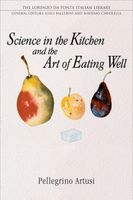The emperor Tiberius used to say that man, after the age of thirty-five, should no longer have any need of doctors. While this aphorism, in a broad sense, may be true, it is no less true that if called in time, a doctor can nip an illness in the bud and even save you from a premature death. Moreover, even if a doctor does not cure you, he often provides relief, and always gives comfort.
The emperor Tiberius’s maxim is true inasmuch as man, by the time he has reached the halfway point in his life, ought to have gained enough experience about himself to know what things are harmful and beneficial to him. By means of a good diet, he should be able to govern himself in such a way as to keep his health in perfect balance. This is not difficult to do so long as his condition is not threatened by innate defects or internal injuries. Moreover, having reached that age, any man should also have acquired the conviction that the best care is prophylactic, or preventive, that one should expect very little from medicines, and that the cleverest physician is the one who prescribes few and simple things.

